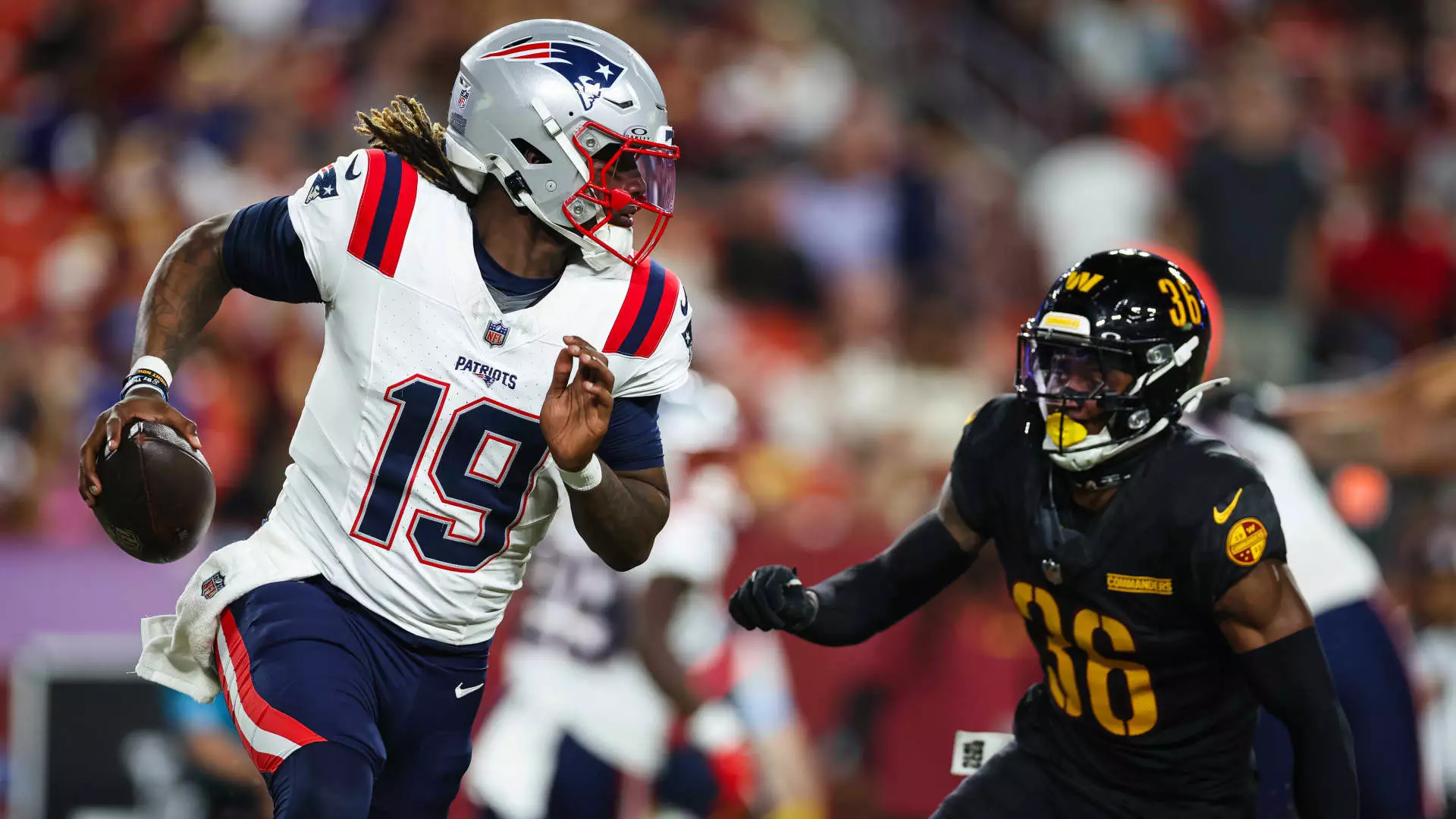The return of football season in the US has sparked a significant increase in sports betting activity, with projections indicating that U.S. adults will wager a staggering $35 billion during the NFL season. This represents a notable growth of over 30% from the previous year’s total of $26.7 billion. Several states, including Maine, North Carolina, and Vermont, have recently legalized sports betting, leading to a surge in betting opportunities for consumers. Furthermore, court rulings have paved the way for the relaunch of sports betting in Florida, indicating a broader acceptance of this form of entertainment.
Despite the booming activity in the sports betting sector, the stocks of major gambling companies have not experienced a corresponding surge. Companies like DraftKings, Penn, Caesars, MGM Resorts, and Entain have all seen negative trends in their stock prices this year. Flutter, the owner of FanDuel, is one of the few exceptions with a 19% increase in its stock value after listing on the New York Stock Exchange. It’s evident that there is a discrepancy between the growth in betting activity and the performance of gambling company stocks.
As the NFL season kicks off, licensed sportsbooks are looking to capitalize on the heightened interest by implementing new strategies to attract and retain customers. Offering innovative wagers and launching improved technologies are key tactics employed by these companies to entice players. FanDuel, the leading sportsbook in the US, has partnered with YouTube to introduce a unique “Sunday Ticket” offer, allowing players to watch out-of-market NFL games with a nominal wager. Additionally, FanDuel has enhanced its app design and expanded its betting options to cater to the preferences of its users.
New entrants in the sports betting industry, such as Fanatics Sportsbook, have made significant strides in a short period. Leveraging its vast database of sports fans, Fanatics Sportsbook has rapidly expanded its operations to 22 states and acquired technology from PointsBet to bolster its offerings. By focusing on customer rewards and engagement, the company aims to differentiate itself in a crowded market. The recent Fanatics Fest NYC event showcased the brand’s commitment to providing a unique and rewarding sports betting experience for its customers.
While established players like DraftKings continue to dominate the market, challenges persist in the form of regulatory hurdles and fluctuating stock prices. Penn Entertainment, for instance, has faced scrutiny due to its underperforming digital business and stock performance. However, the company remains optimistic about its partnership with ESPN Bet and aims to enhance customer loyalty and retention through improved product offerings. BetMGM’s introduction of a single wallet for mobile play in Nevada highlights the industry’s focus on enhancing user experience and convenience.
The sports betting landscape in the US is evolving rapidly, driven by increased consumer interest and technological advancements. While challenges exist in the form of stock market fluctuations and regulatory uncertainties, companies are actively seeking innovative ways to capitalize on the burgeoning market. By embracing new technologies, enhancing customer engagement, and expanding their offerings, sportsbooks are positioning themselves for sustained growth in the competitive industry.

